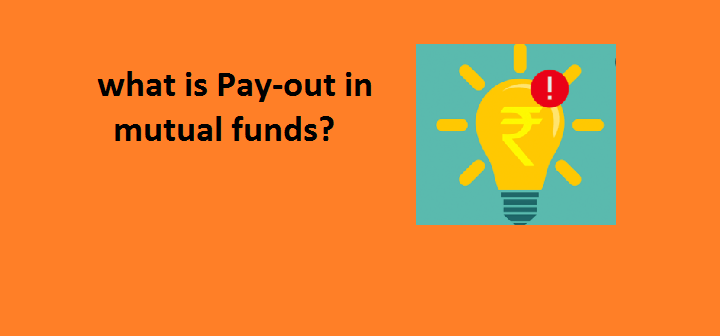What is Pay-Out in Mutual Funds?

The Pay-out is the process of paying out money. The term usually refers to a large sum of money to a customer, merchant, or corporation. It can also refer to a transaction that takes place in the stock market. The pay-out process should be transparent and easy to understand for both the merchant and the customer. Here are some ways to explain the Pay-out process. Read on to learn more about the definition of this important term.
Pay-Out in Mutual Funds:
Pay-out date is the date on which the buyer receives his shares from the broker. The settlement date is usually two working days after the Pay-out date. This can vary from stock to stock, but it should never exceed two working days after the transaction. For this reason, it is important to look into the Pay-out Date when comparing mutual funds. A moderate payout fund will have a diversified portfolio of stocks that provide a moderate payout. A maximum payout fund aims to provide higher returns than its equity-based counterparts. Fixed income securities will generally yield lower returns than equities, but because they are predictable, a high expected payout can be predicted.
When a stock is sold, the pay-out date is the date the buyer will receive his shares from the broker. A stock may take several days to reflect in the client’s demat account. This process varies from fund to fund, but is generally less than two days after the transaction. The payout is a good indicator of a successful investment strategy. You should also look into the Pay-out Term and Time Frame.
Pay-Out in Mutual Funds:
In addition to the Pay-Out, you should also look at the Pay-In date. The Pay-In Date is the date that the shares are transferred to the demat account. If you sell shares in a month, you’ll receive a dividend the next day. In most cases, the dividend is paid monthly or quarterly. You should always check the payout date before selling any shares. The pay-in date is the day the money will arrive in your demat account.
Term of Pay-Out: A pay-out is the date when a share is transferred from one broker to another. The pay-out date is the same as the settlement date. The pay-in date is the day the shares are received by the buyer. The settlement date is the day the company pays out the money to the merchant. The payout date is the day the shares are transferred from the brokerage account to the demat account.
The Pay-out date is the date on which the shares are transferred to the demat account. The pay-out rate is the rate at which the shares are distributed. Most funds distribute their dividends twice a year. However, some of them pay distributions more frequently. If they have a higher payout, a fund is a good choice for your portfolio. It is important to look at the history of a fund’s payouts to get a clearer picture of the company’s strategy.
Pay-Out in Mutual Funds:
The Pay-out date refers to the day the buyer receives the shares from the broker. The payout date can differ from one fund to another, but it is not much longer than two business days from the transaction date. The pay-out date is also known as the settlement date. This is the exact day when the investor receives the shares. This means that the buyer must wait until the settlement of the fund to receive the funds. There is a minimum time frame that the buyer should follow for this process.
A maximum payout fund focuses on the highest payout possible. A moderate payout fund focuses more on fixed income and equity investments. The maximum payout fund aims to provide higher returns than its equity-based counterparts. While fixed income securities tend to offer lower returns, they are predictable and can be used to increase the pay-out amount. Amounts vary from stock to stock, so it’s important to check the history of a fund’s payouts.
Pay-Out in Mutual Funds:
A maximum payout fund aims to produce the highest payout. A moderate payout fund focuses on fixed income and equity investments. In a low-interest environment, maximum payout funds will pay out 1% to 5% annually. The lowest payout fund will pay out less than the maximum payout. A moderate payout fund will focus on a medium payout and will focus more on a lower payout. But a moderate payout fund can be beneficial for investors who want a moderate pay-out.




